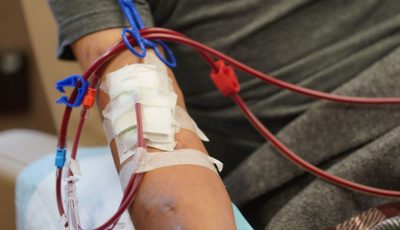REACH effort targets dangers of secondhand smoke

Lee
The Racial Ethnic Approach to Community Health has launched a new anti-tobacco campaign, this time making people aware of the dangers of exposure to secondhand smoke.
REACH project assistant Hee Jae Lee said the campaign is specific to reducing exposure to secondhand smoke.
“The REACH tobacco initiative aims to reduce the exposure of secondhand smoke in bars, poker rooms, and hotels through education and enforcement of the Smoke-Free Air Act,” she said.
According to the CNMI Non-Communicable Diseases & Risk Factor Hybrid Survey Report 2016, adults 25-34 years old have the highest prevalence of smoking.
About 33 percent of men and 17 percent of women currently smoke. Of those smokers, 65 percent are Carolinian, 34.3 percent are Chamorro, and 56.2 percent are other Pacific Islanders. The report also said that 78 percent of smokers report wanting to quit.
“We have provided education about the law and about the deadly effects of secondhand smoke to bars, hotels, and poker rooms. We especially encourage bars to ban smoking completely for the sake of their customers and their employees, though many of them are exempt from the law,” said Lee.
According to the Smoke-Free Air Act of 2008, Commonwealth law generally prohibits smoking (and this includes electronic cigarettes) in government buildings, public places, and places of employment.
The act also prohibits a person who owns, operates, or manages a place of employment from allowing patrons to smoke in the establishment.
“Current law allows stand-alone bars and semi-open bars to smoke. We assume that the airflow will help with the exposure to carcinogens, but studies have shown that this is false. There are more than 7,000 chemicals that have been identified in secondhand tobacco smoke. At least 250 are known to be harmful and at least 69 of the toxic chemicals in secondhand tobacco smoke cause cancer,” she said.
In spite of the law, many employees are still exposed to second-hand smoke.
“Currently, casino employees receive zero protection from the current law,” she said.
In an effort to raise awareness about the dangers of secondhand smoke, the REACH grant, which will end in September 2017, will be adopted by the Department of Public Health.
“DPH will continue its efforts in enforcing the law, educating the public about the dangers of secondhand smoke. The campaign is available only on Saipan. But all mass media campaigns will reach Tinian and Rota,” said Lee.
“Smoking is the leading cause of lung cancer. Your smoking habits are not only harming you but also your loved ones and friends who are around you and inhale your cancer causing cigarette smoke. Please call the quit line at 323-7848,” she added.



























